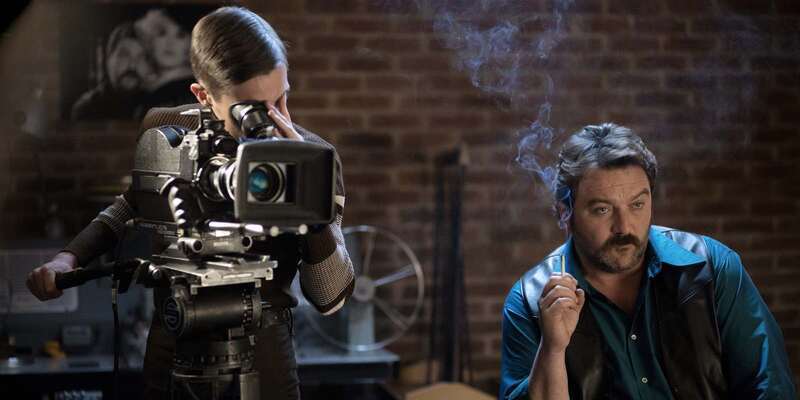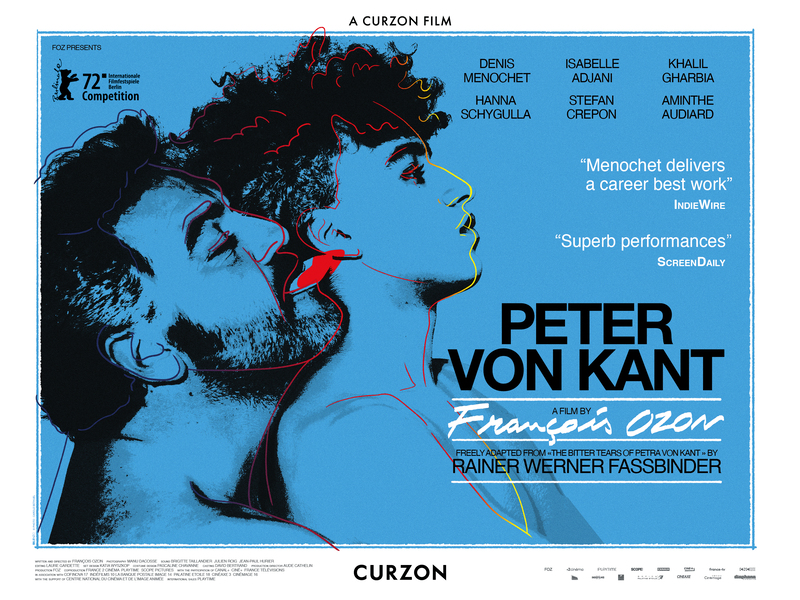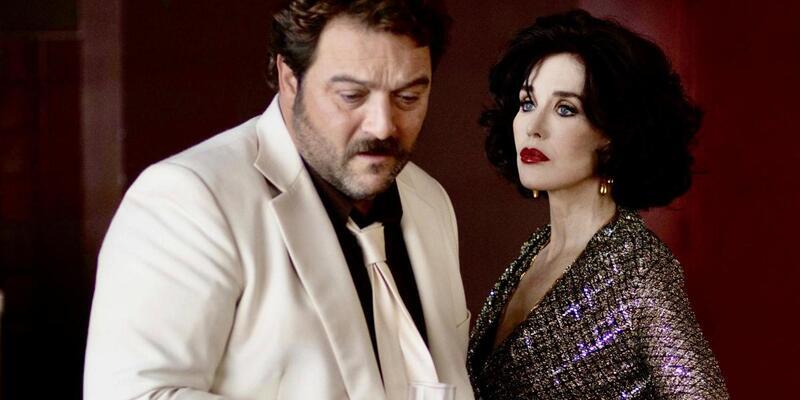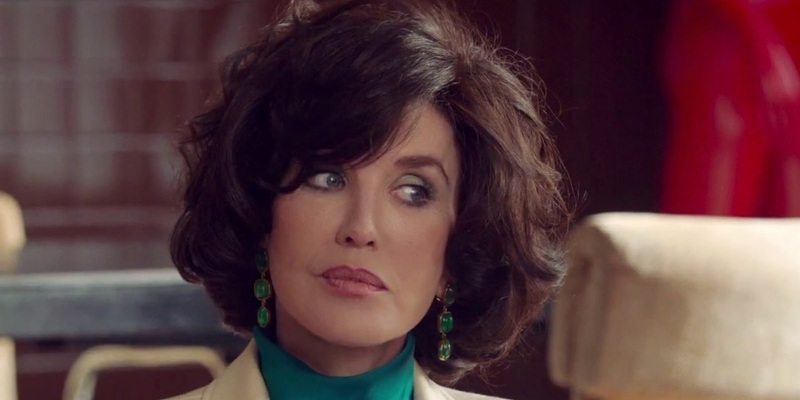
Review by
Benjamin Poole
Directed by: François Ozon
Starring: Denis Ménochet, Isabelle Adjani, Khalil Gharbia, Hanna Schygulla, Stéfan Crépon, Aminthe Audiard

Peter von Kant, François Ozon’s remake of Rainer Werner Fassbinder’s
The Bitter Tears of Petra von Kant, makes its influences clear with a fetching tangerine monochrome
intertitle depicting the god of New German Cinema, which lingers on screen
just before the action starts. Peter von Kant is as much
‘about’ Fassbinder’s earlier film as it is a narrative in its own right.
Duly, Ozon’s typical cinematic playfulness here involves gender swapping
the leads from Fassbinder’s female couple to a male relationship. By
itself the choice initiates a new paradigm for Ozon to explore his
recurrent theme of gender dynamics (viz. esp,
Water Drops on Burning Rocks, his earlier Fassbinder cover) and erotically charged desire.

Ozon also crops his story of the titular Peter - a successful and famous
film director, meeting and falling in love with gorgeous yet potless twink
Amir - from The Bitter Tears of Petra von Kant's two hours plus to a lean 85 minutes, making for a more focussed yet
somehow lighter narrative. The meta gaiety begins with Ozon’s purposeful
mise-en-scene of mirrors and photographs of its protagonists: is Peter
(played by a great Denis Ménochet) an espy of Fassbinder, or, even,
Ozon himself? Certainly, the arch performances evoke the objective invites
of Fassbinder’s Brechtian stylings. Isabelle Adjani turns up as
Sidonie, an established actress who uses coke as a way of maintaining her
brittle and aloof cool. She offers Peter a line (which he hoofs up in an
undignified snuffle) and an offer to introduce him to the fabled Amir (Khalil Gharbia, an Asian Robert Sheehan, i.e. v. pretty), a wannabe actor. A
sidenote: as ever, Adjani is ridiculously gorgeous. Here she wears a cream
linen suit matched with a forest green turtleneck, and you are reminded
how there is perhaps no other director in the world who is as equipped to
dress, light and film beautiful women.

In these earlier scenes, there is a sense of getting plot points into
place for what Ozon is really interested in, which is a depiction of aging
masculinity in crisis. The relationship of jejune Ali and the complacent
Peter follows an inevitable trajectory, and what we are drawn to is
Ménochet communicating Peter’s surging emotions and ingrained flaws. Time
shuffles and we see the director make Ali’s career, with the latter
eventually wanting more than the boujee confines of his mentor/lover’s
apartment. There’s no fool like an old and horny fool who’s left it that
little too late to fall in love, and, thus, Peter becomes obsessed with
his younger charge.
The play-like dynamics of Fassbinder’s original are retained, inviting
scrutiny of its central character. Along with the condensed running time,
another aspect of its predecessor which Ozon lops off is the original’s
‘bitter tears’ prefix, which could be an entreaty to view Peter with
colder objectivity. Certainly, Peter’s desire and attempts to control Ali
is closely aligned with his directorial role: a screen test which
intensifies to interrogation, and a final sequence where captured
representations become sexual taunts from the past, an artificial process
which has no match for real experience. As Peter woefully learns, "human
beings need each other."

Ozon’s occasional cynicism is a novel match for this existing material,
however, wherein Peter, it is suggested, is less interested in human
connection as he is manufacturing and exercising trauma via art. As a sly
eyed portrayal of middle-aged male despair,
Peter von Kant is as cruelly blunt as it is playful, but
occasional forays into dramatic farce (a recurring aspect of Ozon that
I’ve never cared for, but your mileage may vary) in the film’s second act
drag slightly. However, Ménochet’s bear-like performance and Ozon’s
deathlessly slick filmmaking make it consistently worthwhile. Not so much
can’t as Peter von Just About.

Peter von Kant is on UK/ROI VOD now.
